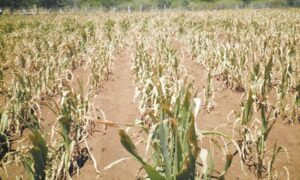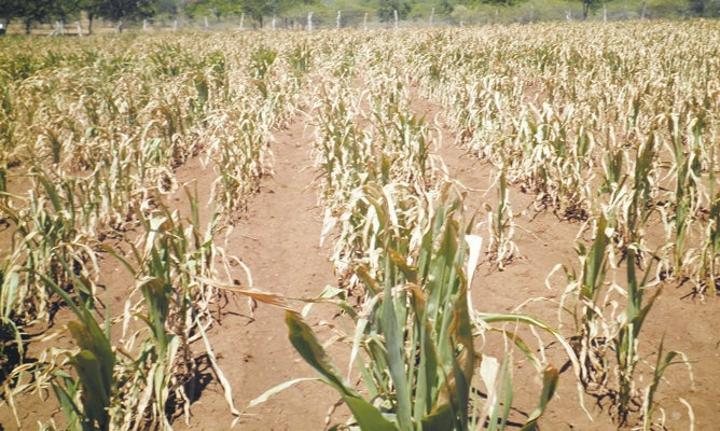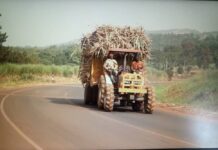By Flavia Ajok
 The prolonged drought has wreaked havoc on smallholder farmers in several parts of Hoima district which has affected production.
The prolonged drought has wreaked havoc on smallholder farmers in several parts of Hoima district which has affected production.
The most affected are farmers in Buseruka, Kigorobya, and Kitoba sub-counties and several crops have weathered because of too much sunshine being experienced in the area.
In April this year, the farmers planted seasonal crops such as maize, beans, and groundnuts following the onset of rains but to their disappointment, they have not had any rains since May this year. Now, the affected farmers are afraid about their food security in the near future, if the condition persists.
David Isingoma one of the affected farmers in Kyamongi village in Kakindo parish, Bulindi town council said that all his four acres of maize which he planted have dried up.
Isingoma said that due to the prolonged dry spell, even the small streams, which farmers have been relying on to feed their animals, have also dried up and as a family they have resorted to one meal a day because of food scarcity.
Julius Ajuna, another farmer in Kitoba sub-county said that the prolonged dry spell has left several households in despair since they lack food adding that there was a need for the district officials to embark on sensitizing farmers to embrace climate change mitigation measures.
Ajuna said that he has lost over two million Shillings, which he invested in planting maize and that he has already cleared his maize garden which he had planted.
While in the same exclusive interview with spice FM, Gloria Atugonza a farmer in Kigorobya said that the drought has destroyed acreages of plantations as rains remained unpredictable which has also led to an increase of prices of other food items.
She said that food has become both scarce and costly for several residents and that a kilogram of maize had increased from 700 to 1400 shillings.
At Hoima central market three small pieces of cassava are being sold at 2000 shillings from 1000 shillings before the drought and the price of beans has also increased from 1500 to 3000 shillings per kilogram in several stores around Kiryatete slum.



